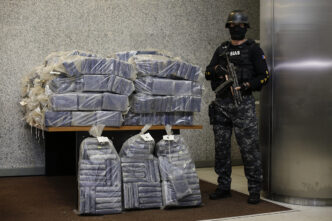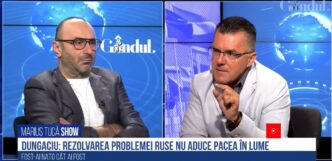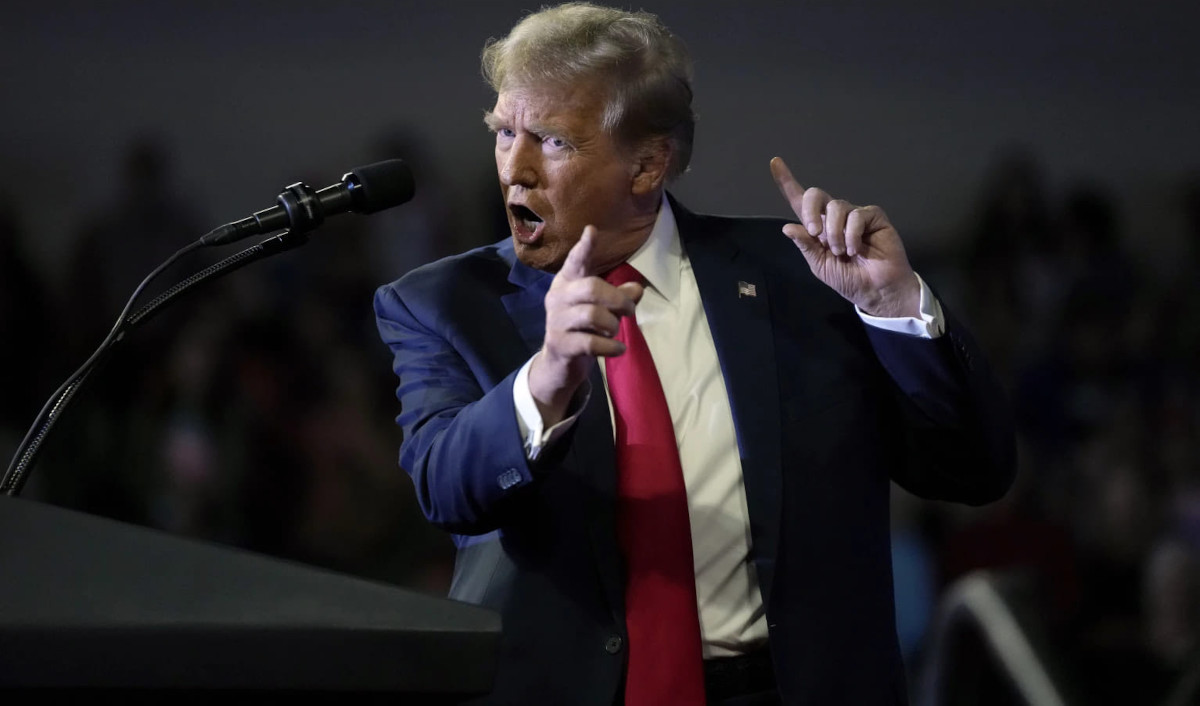Romania does not recover the money produced by drug traffickers and does not prosecute the money laundering associated with this phenomenon, shows an analysis by Context.ro based on public information.
What’s more, Romania said in a Moneyval report in 2023 that drug trafficking posed a “medium” risk, while experts warned that Romanian authorities were downplaying the risk and not assessing it correctly, and that the judiciary needed more resources to fight the phenomenon.
Just a few months later, after the May 2nd tragedy, drug trafficking and drug use suddenly became a “national security” issue on the CSAT agenda, and the Interior minister announced that Romania had “lost” the fight against drugs.
The institutions that were part of the CSAT working group last fall are now passing the buck and, when asked by Context, did not answer what concrete measures they have taken after that meeting to combat drug use and trafficking.
Last but not least, the main institutions in the field of justice still do not have statistics with information showing the extent of the money laundered by drug traffickers, with the help of which they manage to rebuild and continue the criminal networks, according to the answers that reporters received during the documentation.
Read also Romania does not know how much money is laundered through cryptocurrencies – Context.ro report.
Money stays with traffickers
“Take away their money and you will see that drug trafficking can no longer exist,” the chief prosecutor of the European Public Prosecutor’s Office said in an interview with Context.ro.
“Drug trafficking cannot exist if it is not financed and it cannot exist if someone does not launder the money,” Laura Codruța Kovesi said in November 2023.
Two months earlier, an analysis by the German foundation Friedrich-Ebert-Stiftung showed that Romania still ranks among the countries waging a so-called war on drugs, in fact an ineffective and counterproductive war against mere users, while the big drug trafficking remains largely unaddressed.
We asked the High Council of the Judiciary how many final decisions on cases simultaneously involving drug trafficking, setting up an organized criminal group and money laundering have been handed down by Romanian courts in the last five years and how many of these have resulted in convictions or acquittals.
The SCM replied that it does not know, ‘as the data generated by the statistical application summarizes the cases according to the main subject of the case’. In the same reply, the SCM referred us to the rejust.ro portal, where anonymized court decisions can be found.

The most recent DIICOT balance sheet (2023) shows, however, that prosecutors should increase “the use of parallel financial investigations” in order to “suppress the possibility of organized crime networks regrouping and prevent its (criminal proceeds, ed.) from entering the legal economy”.
We wanted to talk to the DIICOT leadership to better understand why there are no criminal cases that pursue money laundering and drug trafficking at the same time, but we were refused.
And while the courts and prosecutors’ offices were unable to find answers, we tried to find out from ANABI, the agency that confiscates and then manages the proceeds of crime, how much money it has confiscated from drug trafficking cases.

They replied that they do not keep records by offense:
“This record is not kept by categories of offenses, which is why we are objectively unable to provide you with answers to the information requested,” was also the answer given by ANABI representatives. (The National Agency for the Administration of Non-Available Assets)
“Medium risk” was actually a “national security” issue
Romania acknowledged in the Moneyval report in 2023 that it has many drug users, but only “a few complex cases”, and drug dealers in Romania have a “low standard of living” so they can’t buy many drugs from abroad. So the risk “is medium,” the authorities said, although they also showed how young people were starting to use more and more drugs.
“The residual risk of drug trafficking is medium. The number of cases is high, but only a few are considered to be complex cases; most of the cases are small, with small amounts involved (related to drug possession). The authorities continue to consider the level of risk to be medium; this is informed by crime taking place partly on Romanian territory and mostly in other jurisdictions, meaning that the proceeds of crime are generated abroad. The focus on the relatively minor cases of drug trafficking is explained by the authorities as the result of a low standard of living that affects the ability of drug traffickers to acquire large quantities of drugs from abroad, thus emphasizing the relative importance of the cases on which they focus,” Moneyval said in its 2023 report on the Romanian authorities’ reasoning in the face of the drug trafficking phenomenon.
But European experts from Moneyval have sounded the alarm over the Romanian government’s relaxed approach to the drugs problem.
Note: Moneyval experts are documenting how our country is fighting financial crime networks and analyzing the Romanian institutions involved in fighting money laundering.
In the report, they pointed out that at national level, Romania attaches “too low” a risk to money laundering from drug trafficking, but also that prosecutors need more resources to fight drug trafficking and money laundering more vigorously:

“The problems identified (…) explaining that the criminal justice system needs more resources and training to robustly tackle both drug trafficking and the laundering of the proceeds of trafficking (and thus suggesting that there should be more cases);
“The likely level of drug use among Romania’s relatively large population suggests that the risk of money laundering from drug trafficking expressed in the national risk assessment and in the current understanding of the authorities is too low”.
Three months after the publication of the Moneyval report, Vlad Pascu, a Bucharest-based money boy, drives under the influence and kills two teenagers in the 2 Mai locality, and the violence with which they were blown to bits is shaking public opinion. Thus, the heads of Justice and Interior institutions are beginning to compete in public statements about how the “scourge of drugs” is a national security problem. After 2 Mai, no one has mentioned the ” medium risk” posed by “petty” drug traffickers in Romania.

The drug phenomenon has spiraled out of control in recent years, right under the eyes of specialized authorities. For example, the National Anti-Drug Agency (ANA) said in a 2021 report that the number of criminal groups has almost halved, the number of people involved in these groups has fallen by about 30%, and nationwide trafficking is driven by “small quantities of drugs at street level”, called “small street trafficking”.
The ANA said this while also showing how the amount of high-risk drugs seized in 2020 was more than 124 times higher than in 2019.
Institutions pass the blame. Do we have concrete measures?
More than half a year after the CSAT meeting in October 2023, in which President Iohannis raised the phenomenon of drug use as a national security issue, we asked all the parties present at the CSAT what concrete measures were taken at the meeting and whether there were any effects as a result.

The institutions, which were part of a working group that was to find solutions to combat the drugs phenomenon, passed responsibility from one to the other in their responses to Context’s requests:
- The Presidential Administration told us that the concrete measures are communicated by the Government. Full reply here
- The Ministry of Justice sent us to a communiqué of the Presidential Administration and to the National Anti-Drug Agency, which “establishes the conception and coordinates, evaluates and monitors, at national level, policies in the field of prevention and combating illicit drug trafficking and consumption”. Full answer here
- The National Anti-Drug Agency replied that our request was redirected, “for competent resolution”, to the Information and Public Relations Directorate of the Ministry of Internal Affairs. Full answer here
- The Ministry of Internal Affairs replied that it had intensified its actions to prevent and combat drugs and that an inter-institutional working group made up of several ministries, the SRI and the Prosecutor General’s Office had been set up to establish a series of measures to stop the phenomenon, but emphasized that the activities established by the CSAT working group were not intended for the public. Full response here. (CORRECTION: The initial version of the article incorrectly stated that the MAI did not respond to Context.ro’s request.)
- The General Inspectorate of the Border Police has transmitted that it participates in the work of the Technical Operational Working Group – Prevention, in order to take unified measures at the level of all national institutions with responsibilities and carries out a number of specific activities such as the use of service dogs specialized in drug detection at border control, awareness campaigns or the development of analyses. Full answer here
- The Directorate General for Anti-Corruption has not sent any reply.
- The Public Ministry redirected the request to the DIICOT, which stated that “the requested data is not of public interest”. Full reply here
- SRI informed us that the requested data is exempt from free access by citizens.
- The Ministry of Health provided us with general data on its activity in this field. Full answer here
- The Ministry of Education provided us with some things it has done after the CSAT meeting, which in general provide for informing students about the risks of drug use. Full answer here
Until the tragedy on 2 Mai, President Klaus Iohannis had not publicly sent any message signaling that drug trafficking and drug use is an alarming phenomenon in Romania.
The Pascu case has shaken Romanian society with its violence, and the avalanche of cases of drug use among young people and the increasingly alarming statistics on the falling age of drug use have forced the President to put the phenomenon on the CSAT agenda.

Iohannis did not make drugs a national security issue until September 2023, after 9 years in office as President of Romania, who won his mandate with a project on Education.
- “The effects, the scale, the societal challenges of drug use, especially from a young age and in schools, pose a serious challenge to individual and national security. At the same time, preventive and responsible behaviors are necessary,” the President said in September 2023.
How did we get to this situation and how is Romania fighting drug trafficking?
On March 20, President Klaus Iohannis promulgated the “2 May Law”, which increased the penalties for drug trafficking and eliminated the possibility for traffickers to receive suspended sentences in these cases.
Thus, sentences for traffickers of risky drugs (such as cannabis) were increased from 2-7 years to 3-10 years imprisonment, and for traffickers of high-risk drugs (cocaine, heroin, etc.) from 5-12 years to 5-15 years.
In international drug trafficking, sentences have increased from 3-10 years to 5-15 years imprisonment for those who traffic in high-risk drugs (cannabis) and from 7-15 years to 10-20 years imprisonment for those who traffic in high-risk drugs (cocaine, heroin, etc).
But what do the experts say?
“What the state institutions propagate, namely that drug dealers are those who are caught with a purse or a wallet, a metal grinder in their pocket or I don’t know which children who give other children some pills, those are not drug dealers, in the criminological world and in the world of any criminal, social and logic-oriented sciences, those are simply consumers”, says Vlad Zaha, criminology expert, in a statement to Context.ro.

At the same time, “cultivation, production, manufacture, experimentation, extraction, preparation, processing, transformation, purchase or possession of (high) risk drugs for own consumption” is punishable by imprisonment from 3 months to 2 years (or fine) for risk drugs and 6 months to 3 years for high risk drugs. This, technically, is where consumers should come in.
“So consumers, the vast majority of them of cannabis, but also of other substances like party drugs, pills, mushrooms and so on, are neither victims nor criminals, let’s call them that. They are simply people who, in the course of their lives, choose a substance other than those promoted at the will of the state, such as alcohol and so on. On the other hand, we have about 10% of all illegal drug users – they are problematic users, who end up developing different pathologies or addictions, different conditions, perhaps they end up having problems in their social life, they end up with criminal records. They, they are called, we can call them very simply, problematic users, who end up having problems, as the name says, and they are mainly victims. It makes no sense and no sense to criminalize them,” Vlad Zaha added.
Zaha points out, however, that the term “drug trafficker” is often misunderstood in Romanian society and legislation.
The criminologist points out that most of the time, especially among young people, there is the phenomenon of “group consumption”. Specifically, the expert says, young people who want to use drugs turn to other friends and so there is “an inevitable social barter” when there are hundreds of thousands or millions of users.
” (…) the moment we talk about figures of millions of users, as we have in Romania, it’s like trying to eradicate the common cold, pure and simple. It is impossible to eradicate it. Millions of people will catch a cold every year (…) You can’t eradicate this small trade in drugs any more than you can eradicate drug use. So these young people (…) are nothing more than an extremely predictable reality, existing everywhere around the globe (…) They should not be classified as drug dealers and possibly sentenced to decades in prison, because a young person who gives another young person a gram of cannabis, you do more harm to society, the country, individuals, the family, if you sentence him to years in prison, than if you leave him alone,” added Vlad Zaha.
This is getting to the point where the courts are rather loaded with numerous cases where drug seizures are insignificant.
According to the latest DIICOT report, last year there were 26,293 cases “involving illicit drug trafficking offenses”. Of these, 1,756 were solved by prosecutors (through indictments or plea agreements).

Including the DIICOT shows that, compared to 2022, in 2023 there was “a significant increase in the number of cases to be solved” because there were “multiple police actions following the publicized 2 Mai case”.
“The Global Commission on Drug Policy, in a 2019 report called Refocusing on Organized Crime Elites, even recommends to all states to abandon the search or the apprehension of these small traffickers or social suppliers, because you don’t have resources, effectively, available to intercept the big drug trafficking, which is not intercepted as people think in the movies,” Vlad Zaha adds.
At the level of DIICOT, the institution mentioned at the beginning of 2024 that there were 19 prosecutor posts filled in the central structure dealing with drug trafficking, out of 23 provided for by law.
To put the situation in perspective, Justice Minister Alina Gorghiu said in August 2023:
- “There are only 14 prosecutors working in the Anti-Drug Trafficking Section of the DIICOT central structure. They are working on 7,000 drug cases of which 2,700 were opened in the first 6 months. I have sent a directive to the Prosecutor General, Alex Florența, so that the Public Prosecutor’s Office intensifies its work to combat forms of crime involving illicit drugs. The action plans must also cover the component of damage recovery”.
On the capacity of criminal justice institutions to fight drug trafficking, prosecutor Alex Florența says prosecutors’ offices and the police do not have enough staff to be more effective. Moreover, the laws are too lenient. These elements combined, says the prosecutor general, make traffickers operate with confidence in Romania, according to a March 2024 interview with Free Europe.
The Port of Constanta, the “elephant” of drugs in Romania Romania
In the same interview, the Prosecutor General says that the Port of Constanta is vulnerable to drug trafficking and that there is a need for greater investment in scanning equipment and an increased police presence in this strategic port.
“I think that first of all the scanning system needs to be developed much better, it’s a problem that Romania has had for a long time,” Florence said in early 2024.

The statement came in the context of the fact that the Port of Constanța has not detected any drug seizures since 2021, according to information provided by the General Inspectorate of Police to G4Media, although the latest report on drugs in the European Union, published in June by the European Monitoring Center for Drugs and Drug Addiction (EMCDDA), shows that trafficking networks are increasingly targeting smaller ports in the EU.
Moreover, in a report carried out in partnership with several European institutions, the DIICOT said that Romania is a transit country on the Balkan route (especially through the Black Sea seaports), especially for drugs such as heroin, cocaine and ecstasy, the source added.
And the situation is not new or unknown.
A report published in 2022 by The Global Initiative Against Transnational Organized Crime names the Port of Constanta as one of the most important gateways to the Balkans for drugs from South America.
In his latest public outing on the Port of Constanta, Interior Minister Cătălin Predoiu said he would like to see greater efforts to combat drug trafficking in the Port of Constanta and said that what is happening there needs to be studied more closely from the perspective of factors outside the Interior Ministry.

And Romania’s Prime Minister, Marcel Ciolacu, declared in January 2024 that the Romanian authorities had launched a plan to combat trafficking in psychoactive substances and that “in the coming months you will see record drug seizures in Romania”.
So far, nobody has seen them.
Ne bucurăm că ne citești!
Dacă vrei să ne și susții:











